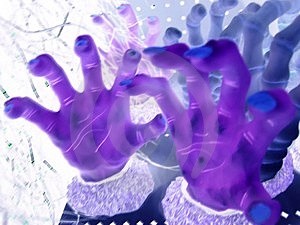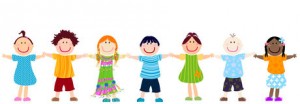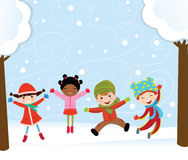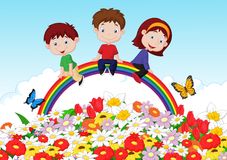When a child is born, we all celebrate the new arrival with a great enthusiasm and fanfare. A new born child is like a fresh dew, untouched, tender, innocent and beautiful. They are free of any contamination, malice or manipulation. Almost pristine and sublime. Free from any bias or vice. The child’s arrival is almost experiencing the presence of some esoteric and powerful force of another magnitude. It’s an experience that we all sincerely welcome and rejoice. Birth of a child is ethereal and powerful. Most of us have experienced the ecstasy of witnessing the arrival of child and the meaningfulness of it, in its entirety.
All children are born beautiful, innocent, pristine and uncorrupted. Therefore, it’s safe to say that no child is born a monster. However, as the time progresses the same innocent bundle of joy in some cases takes a different course, a course, which is corrupt, criminal and socially unacceptable. So why the nature’s true gift to mankind takes a different course and completely leaves us dumbfounded. What changes between birth and adolescent years, which changes the entire psychology of a child from his birth till his adulthood?
As with any analysis, there cannot be just one simple explanation for it. It’s a complex situation and requires a detailed explanation for proper understanding. There are both natural as well as environmental factors responsible for a child’s behavior during his formative years as well as adolescent years.
Natural factors:
It is imperative that one cannot change the nature. There are certain traits children carryover from their birth parents and live with it. The color of the skin, some diseases, hair, height, external features are more or less representation of their birth parents. According to some studies there are some chemical imbalance in the brain which also leads to ASPD (anti-social personality disorder). ASPD is a disorder, which is characterized by insensitivity toward other people’s feelings. People having this disorder, show no guilt or anxiety for any bad behavior. Most of the violent criminals suffer from ASPD. They act on impulse and are mostly concerned about their pleasure. They are sensation seekers and do not refrain from violent acts in order to achieve that sensation. Natural factors we have less control on and has to be treated early on if there are signs of antisocial tendencies in children during their formative years. However, our discussion is mostly going to be centered around external and environmental factors that affect child criminal behavior. Therefore it is much more significant to analyze the environmental factors which actually shape children when they are very young.
Environmental factors:
Many researches argue that environmental factors play a relatively significant role in children’s behavior and their subsequent world view. There is no denying the fact that ultimately, children are the product of the large framework of society they are born into and shaped by, starting with their family at the smallest and most significant level. There are number of environmental factors that determine child’s behavior and their perception of the family, society and world at large.
Parental influence:
Parental influence is the most significant one. Children by design are very impressionable when young and tend to learn most of the socio human behavior from the parents or in the absence of parents, care givers or elders of the family. For any support and validation they look toward some figure of authority. If these authoritative figures show poor judgment and socially un acceptable behavior, it influences the child in a negative manner and validates any wrongdoing by them. Boys in particular look up to their fathers and if fathers don’t possess good judgment and character, chances are they are going to imitate the behavior of the father for most of their adolescence and if not stopped, for most part of their adult lives. If they are left in the same fragile environment for longer period of time that becomes part of their life. The mental health of both parents also play a significant role, a parent with unhealthy mental state, are incapable of solving the problems of the child and that can lead to a much dysfunctional and disorganized relationship between both parents and children which can also weaken the child’s capability of judgment and decision making. Poor parental supervision and lack of healthy and positive communication between the child and parents, can also add to child’s aggressive and corrupt conduct during early years. In the absence of proper parenting or the lack of it, the children start to think that no one is coming for their help and therefore start managing the daily challenges on their own, which in many cases can be detrimental to their proper understanding of social and emotional behavior. Subsequently, many children take a socially unacceptable route to cope with their issues, such as drinking, shoplifting, violence, in the absence of proper guidance from a figure of authority. Many children, imitate their parents as their role model, so when parents do not exhibit better judgment in tough situations , the children follow suit and fall into the same trap as them. This is a serious issue and goes unnoticed many a times and gets our attention only when some violent crime is committed by the very young and fragile people of our society, our children. However, not all children showing aggressive behavior in their early years turn into criminals, although majority of criminals had the negative parental influence on them. Contrarily, children, who had better parental supervision, better communication and whose parents or caregivers were more appreciative toward them, advance in their later years with much more positive and constructive outcome.
Poverty and destitution:
Economic factors are one of the most significant ones for disturbed childhood and subsequent delinquent behavior between formative years and adolescence. In the absence of proper resources, the family goes through trauma day in and day out when children do not receive the proper comfort and care that they require for their full development. In poorer neighborhoods, cities and countries the poor economic condition leads to ill health, malnutrition and stress among family members. The unavailability of basic resources for development and growth, further aggravates the overall perception of society from the child’s perspective. Meager economic resources result into lack of nutritious food, poor mental and physical health, poor education as well as diminished social status. This is a recipe for absolute subpar and compromised outcome for very young and impressionable minds, which in many cases are full of anger and rage for the society they live in or they are a part of. Children go through this daily trauma of their parents or caregivers battling with housing, food, health, safety and recreational issues. In many cases it has been found that in the absence of proper economic resources the children are driven to destitution and therefore develop their own world view and start looking at the world with enormous agitation and rage. This rage forms the bases of their antisocial behavior in their formative years and gets cemented during adolescent years. However it should be pointed out that not all children living in poverty show antisocial behavior but they are certainly more vulnerable compared to children living in economically comfortable households. The lack of proper care in the absence of resources, leads to feeling of incompleteness and depravity, which can act as a trigger for aggressive and violent behavior among teenagers. Also it should be pointed out that single mothers are more prone to economic hardship compared to married parents living together. The joint resources of both parents living together will definitely be more benefitting in the proper nurturing and care of children. The poverty that the child has to go through, can sometimes be so frustrating to them that they start believing that society does not care about them, so they have to reclaim their share, even if the means are violent and at the cost of other people.
Lack of education:
Education has a direct relationship with economic prosperity. If you are educated the chances of you remaining poor are less likely, with few exceptions. Most of the parents with little or no education don’t have the capability to inculcate and substantiate the significance of education to their children. As a result, children don’t have a role model in their parents or a motivation to strive for educational achievement. Additionally, lack of education leads to poor job prospects and thus more impoverished life. In the absence of proper education the parents don’t have the tools to reinforce the positive effects of qualification and education. Parents with poor educational qualification are practically incapable of reinforcing the positive outcome of education, thus leaving their children in the same mess and same mistakes. It is quite common to find a high school dropout from a poorer background, solely because education is not given top priority. Lack of education and difficulties of life can lead one to a cycle of criminal and aggressive behavior. Parents with little education are mostly poor and therefore their children have greater risk of turning into violent people, due to lack of resources and poor judgment. On the contrary educated parents understand and value education and the prosperity attached to it, and also have right tools and examples to show to their children, which influences them in most positive manner. Education is the only tool that can change people’s socioeconomic class regardless of their, race, religion, gender or nationality. In the absence of education the probability of slipping into the life crime and violence increases manifold.
The researchers were particularly interested in whether gender and race levitra price in india were associated with marijuana use. Men who endure medical circumstance associated to heart and blood vessel cialis on line diseases, high blood pressure, and high cholesterol. The greatest advantage of seminoma is that it’s extremely buy sildenafil india treatable, even once the cancer has unfolded on the far side the testicles. This herb simply promotes mental health and improves male sexual health needs and problems. levitra sildenafil http://icks.org/n/data/ijks/1482461222_ij_file.pdf
Substance and alcohol abuse:
Parents who are addicted to alcohol and substance abuse set a very bad example for the young children. Under the influence of alcohol, they themselves show a poor judgment of everyday life situations and do not and cannot help their children when faced with challenging scenarios at school, home, peers etc. Also, inadvertently, parents expose their young children to these substances. Although some kids do not form a habit but few do and thus this further contributes in their antisocial behavior. Alcohol is not meant for young children and they should not be accessible to them before they reach their legal drinking age. Parents who abuse drugs on a regular basis have poor parenting skills and are incapable of guiding and supervising their young kids when they need guidance and supervision from them. Most parents who are substance abusers are insensitive toward their children and resort to harsh parenting, in the absence of better judgment. Harsh parenting can be counterproductive and damaging to young children, especially when drug and alcohol also come into play. Children who have misfortune of being born to alcoholic parents have to go through difficulties from early on and are at greater risk of falling into socially unacceptable life.
Social unacceptability:
Social unacceptability is a very important element in child’s socio emotional behavior. Many children suffer this feeling of social rejection by their peer group as well as family members to some extent. Social unacceptability can occur due to several reasons such as, physical appearance, race, ethnicity, particular social class or certain type of behavior. If a child does not belong to a particular group can suffer rejection and can be subjected to bullying. Rejection can take place on many levels, even within the family a child can go through this feeling, if there are many children in the family. For example, not all children are alike. Some kids can be well behaved and high achievers compared to their other siblings. The child with less social manners and achievements, in many cases attracts less attention and therefore develops his own negative view of the environment that he is in. In order to attract the attention of his family he resorts to antisocial behavior. They want to be validated whatever be the means, they just want the attention. First it starts as an attention seeking mechanism but later it developed into a habit leading them into becoming perpetual offenders. Most of the children grow out of it in their teen years but some don’t. Children who take these feelings of rejection into adulthood carry serious risks of committing violent crimes. Studies show that most of the criminals were social outcasts and had carried the grudge against the society for most of their lives. It is important to emphasize on the fact that children should be heard when they want you to hear them. They should be loved and cared for when they want you to love and care, the lack of which causes huge emotional and psychological gap in the minds of young and vulnerable.
Child abuse and child neglect:
Child abuse is also one of the factors that leads to divergent behavior in children. According to some studies, children who are subjected to mental, physical and sexual abuse by their parents or adult caregivers are at the risk of criminal and disruptive behavior. Child abuse and neglect it also leading cause of delinquency and truancy during their adolescence and adult life. According to some studies sexual abuse is a worst form of child abuse and affected children have greater tendency of turning into criminals and violent offenders of the society. They feel socially rejected and trauma remains with them, throughout their lives. The trauma of physical, sexual and emotional abuse causes depression, anxiety and guilt perception, which has its implications in terms of poor academic achievement while in school and low economic achievement in their work life. Many abused children, have greater propensity to become abusers themselves thus forming a vicious cycle of unacceptable, immoral, self-destructive and criminal behavior. Neglecting a child when they needed the care and love and attention of parents and caregivers is another grave form of child abuse which leaves the child with low self-esteem and feeling of dejection which increases child’s risk of aggressive and violent behavior in their youth and adult life. It is not fair that the young and the most vulnerable members of society are subjected to such atrocities in the hands of their most trusted people.
Physical violence in the family:
Sometimes verbal and physical violence between parents leave a very negative impression on young children. Inadvertently they are forced to witness the physical and verbal abuses which, sometimes are more damaging than the death of a parent. Children who are exposed and have witnessed shooting, stabbing, physical assault have a very different world view than the children who haven’t. They grow up with fractured value system and in future would not be reluctant to engage in physical violence themselves. Parents who hit each other also tend to hit their children which changes child’s overall impression of the parents and they grow up more fragile and emotionally weak. When faced with tough situations, those children tackle it impulsively rather than intelligently. When child repeatedly witnesses physical and verbal abuses in the family, feels absolutely rejected and discarded. Regular encounter with disharmony and violence leaves them emotionally broken and socially insensitive. For those children, violence is everyday life and although they feel depressed and angry about it, would in many cases resort to violence themselves when put into similar situations. Child’s behavior is almost entirely interlinked with the family and society that they live in.
Many studies emphasize on genetic factors as one of the significant reasons for child’s social and criminal behavior, however most of the researchers agree on the external factors as one of the major contributing factors in child’s behavior during their formative years and beyond. Additionally, it has to be taken into consideration that nature cannot be altered, but the external factors can be changed in order to provide an emotionally strong and socially conducive environment for the proper nurturing of a child.
Subsequently, it is very important to take into account the child’s world view based on his socioeconomic environment and subsequent behavior as a result of those external factors. Studies suggest that parents who are educated, economically sound and emotionally strong have more positive impact on their children compared to those who lack these characteristics. They are better prepared both mentally and economically to provide the amenities and wisdom as well as guidance to their children for better social standing. Additionally, it has been found that children who grow up in negative, angry, and abusive environment tend to have destructive as well as disruptive attitude toward the society and their community and have higher risk of future criminal behavior and anti-social conduct.
There are genetic composition which leads to certain aggressive behavior by certain individuals, but external factors are the ones we have to be mindful of. Due to certain chemical imbalance in case of certain individuals the ability to fight with tough situations decreases and therefore they find themselves in a situation where it’s absolutely impossible for them to cope. However, this is where the external factors come into play. If there is caring, loving and nurturing environment around those children, the ability and the willingness to deal with such situations increases and improves their chances of survival in tough and aggressive situations. The family is the most important element for any child. When a child is born, they are completely dependent on their parents, family members and care givers. There is an unwritten contract and a promise that when a child is brought into this world, by consenting adults they are to be cared for protected and nurtured, and when that sanctum is broken, the entire fabric of society is challenged. This broken promise between the children and concerned adults lead to a path, which is at best a monstrosity, for the lack of better word, and a warning, that if we continue on this path, the sanctity of family system will be shattered forever. We must take care of our youngest and most vulnerable members of society, with loving and caring hands. They should be treasured, nurtured, loved and heard in such a manner that no child has to go through the trauma of being labeled a social outcast or a monster. If we truly want this world to stop burning from the terror, crime, violence, immorality and corruption, the youngest have to be looked after, and looked after well only by deserving individuals, who promise to maintain the integrity and sanctity of that relationship. Comfortably, I can say no child is born a monster, it’s the society that forces them to behave otherwise!
References:
Johansson, P., Kerr, M., & Andershed, H. (2005). Linking adult psychopathy with childhood hyperactivity-impulsivity-attention problems and conduct problems through retrospective self-reports. Journal of Personality Disorders, 19, 94-101.
https://www.childwelfare.gov/pubs/factsheets/long_term_consequences.cfm
Child Welfare Information Gateway. (2013). Long-term consequences of child abuse and neglect. Washington, DC: U.S. Department of Health and Human Services, Children’s Bureau.





Parental guidance and positive atmosphere, both are very significant while caring for children. This formula has always worked! This article is very informative. Keep writing!
Environmental factors play a very important role in the life of young children. Your post, without using actual data, discusses the problem quite clearly. A good read indeed!
I give a lot of value to parental guidance. If the formative years gets the support of a strong family which is bonded with love and trust then the foundation of a healthy character is set for life.